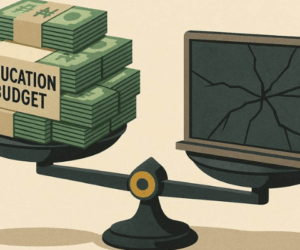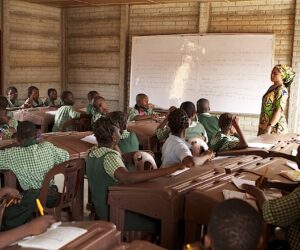Ikenna Ezeobi got admission into one of Nigeria’s public universities at the age of 18 to study a five-year course. He was a victim of recurring strikes by the Academic Staff Union of Universities (ASUU), which made him lose one academic year, thereby extending his stay on campus to six years.
In addition to having his programme spilled over against his wish, Ezeobi was also unluckily not deployed earlier for the compulsory National Youth Service Corps (NYSC) as he waited for another six months before proceeding to service for one year.
When he completed his NYSC programme, he headed for the labour market to submit his curriculum vitae (CV) as a fresh graduate with Second-Class Upper (2:1) division.
It was at this point that it became clearer to Ezeobi that the ASUU strikes that extended his graduation time did more harm than he could have imagined as a student.
When Ezeobi could realise that the maximum age for entry level jobs is 25 years, the young graduate was already 26 years after these years. (18 years+ 5 years+ one year+ six months+ one year).
The recurring ASUU strikes are putting several Nigerian undergraduates in disadvantaged positions in the labour market when they graduate.
Due to the number of years spent at home and school, many are often over-aged for jobs in banks, oil firms and several organisations.
For Jessica Osuere, founder/CEO of RubiesHub Educational Services, it is a sad situation, with students and parents always on the receiving ends of these endless strikes.
“It is a typical ‘when two elephants fight, the grass suffers’ scenario. Each strike or protest is another wound to a fragile education system.
“Until ASUU and the federal government shift from confrontation to collaboration, students will remain trapped in this vicious cycle of disruptions,” she said.
Read also: Inside 16-yr–old ASUU-FG deal that turned lecturers to ‘strikers’
It is no longer new that for decades, Nigerian university students have found themselves trapped in the crossfire of an unending battle between ASUU and the federal government.
Recurring strikes, stalled academic calendars, and prolonged negotiations have disrupted students’ education, leaving many uncertain about their future.
While both parties defend their positions, it is the students who continue to bear the brunt of this institutional deadlock, being victims of a system marred by mistrust, broken promises, and policy failures.
Stakeholders believe that students who are ready to advance but are forced to wait for two or more extra years to graduate may become disillusioned with the education system.
According to the United Nations Children’s Fund (UNICEF), Nigeria had 18.3 million students or children shut out of school in 2024. This obviously is worrisome in a country where dropout rates are already a pressing issue.
Busayo Aderounmu, a senior lecturer at Covenant University, a victim of ASUU strike, decried the vicious circle of the strike.
“I am a product of the effects of strike actions as it affected our academic years while in school. Some people will not resume after the strike due financial issues. Ladies become pregnant and some of them wouldn’t be able to cope with the rigours of combining studies with child bearing.”
Erosion of trust in public tertiary education
Stakeholders express concerns that ASUU’s recurring strikes erode students’ trust in public tertiary education.
Nubi Achebo, director of academic planning at Nigerian University of Technology and Management (NUTM), said one of the implications of the impasse between ASUU and federal government is decreased trust in public education.
“Frequent strikes erode trust in Nigeria’s public education system, pushing parents and students toward private universities or foreign institutions,” he said.
Similarly, Gift Osikoya, a teacher, emphasised that strikes cast doubts on public higher institutions.
“Frequent strikes can tarnish the reputation of Nigerian public universities, making them less attractive to prospective students,” she noted.
With the recurring ASUU strikes, an 18-year-old student of a university admitted for a five-year Law studies would end up spending seven to eight years before graduation. Hence, would be out of the university at 26 years-27 years. With an additional one year for NYSC, he or she would be 28 years when ready for employment.
Read also: ASUU protest gains momentum as UNILAG, UNN, others join
Coincidentally, most multinational companies in Nigeria enforce an age limit of 24 years to 25 years for graduate trainees.
Aderounmu, earlier quoted, reiterated that strikes prolong academic calendar and delay students’ entering the labour market.
“In a situation where some jobs specify age limits, such individuals may be exempted because their ages will be above what is required.
“For instance, I spent two years at 100 level due to strike actions and school closures,” she recounted.
Window for more foreign universities
Nigeria is experiencing a surge in demand for foreign education, with a growing number of students seeking opportunities abroad in the face of recurring ASUU strikes.
ASUU’s continuous strike is seen eroding trust in the public universities, and a window for more public tertiary institutions to establish in Nigeria.
Also, Nigerian parents who can afford private universities, especially foreign ones, send their children there to avoid wasting their peak years.
According to Osikoya, the recurring strikes have the tendency to push some students into studying abroad, resulting in a loss of foreign exchange for the country.
Creates holes in parents’ purses
Stakeholders maintain that ASUU-FG impasse drains many parents financially.
Aderounmu said it causes financial strain for parents who do not know the exact time their children will graduate.
Osuere, earlier quoted, emphasised that parents bear the brunt of the strike financially, as they support their children longer than they had planned on campus.
Alternative route
Friday Erhabor, director of media and strategies at Marklenez Limited, urged the union find another avenue of expressing its grievances with the government other than via strikes.
“ASUU should find alternative means of achieving their goals. The rate at which they go on strike has demonstrated that the strategy is not working. That is not to say that the federal government must not do the right thing,” he said.









